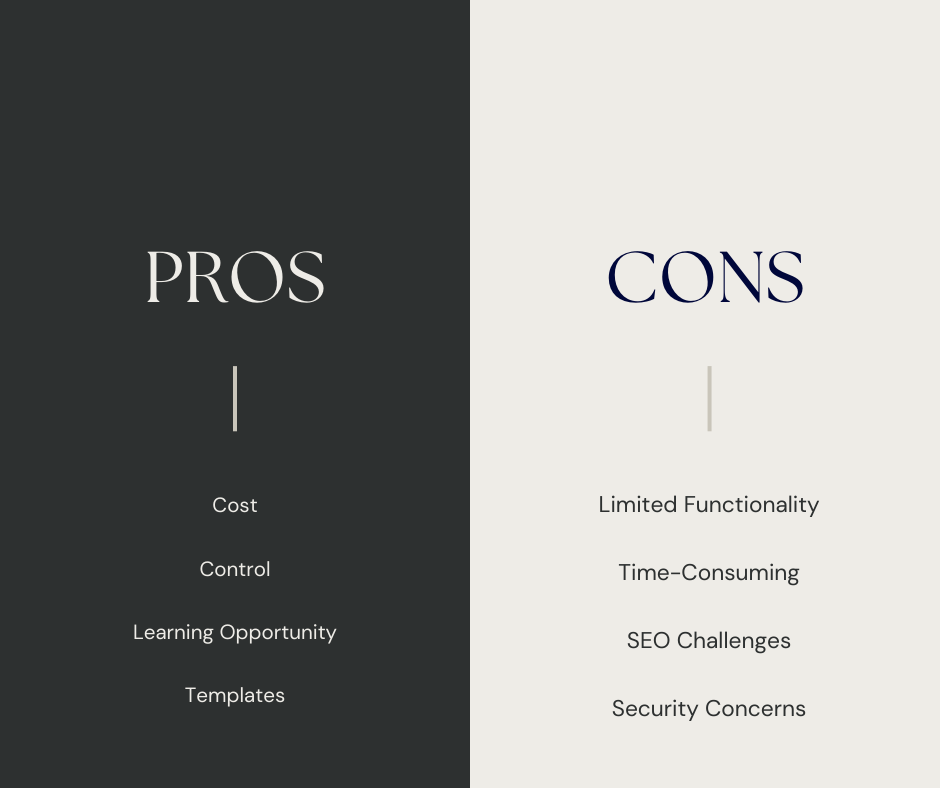Designing a website on your own can be a fun and fulfilling experience, but it’s important to be aware of the potential risks and challenges. Here are some factors to consider before taking the DIY route:
Lack of Professionalism
DIY websites might not have the polished and expert design that comes with hiring a professional. This can impact the credibility of your website, especially if it represents a business or brand.
Limited Functionality
DIY website builders often offer a limited range of features and templates, making it difficult to customize and add advanced functionalities without coding knowledge.
Time-Consuming
Designing a website from scratch can be time-consuming, especially if you’re new to the process. Your time might be better spent on other important aspects of your business.
Inconsistency Across Devices
Ensuring that your website looks and functions well on different devices and browsers can be challenging. DIY websites may not automatically adapt to various screen sizes, leading to a poor user experience.
SEO Challenges
Effective search engine optimization is essential for your website’s visibility. DIY websites may not have the same level of optimization as professionally designed sites, affecting your search engine rankings.
Security Concerns
DIY websites may not have robust security measures, making them more vulnerable to hacking and other malicious activities.
Limited Customization
While DIY website builders offer templates, there may be limitations on how much you can customize the design. This can result in a generic-looking website that doesn’t stand out.
Scalability Issues
As your business or project grows, a DIY platform might not have the scalability to meet your expanding needs. You might have to migrate to a more powerful platform or hire a professional to redesign your site.
Dependency on Platform
When using a DIY website builder, you rely on that specific platform. If the platform faces significant changes or goes out of business, it can impact your website’s functionality and continuity.
Maintenance Challenges
Keeping your website up-to-date with the latest features, security patches, and content changes can be challenging for DIY users who lack technical know-how.
Before embarking on a DIY website project, carefully assess your skills, the complexity of your needs, and the long-term goals of your project. If professionalism, functionality, and scalability are important to you, it might be worth considering the expertise of a professional web designer or developer.


0 Comments